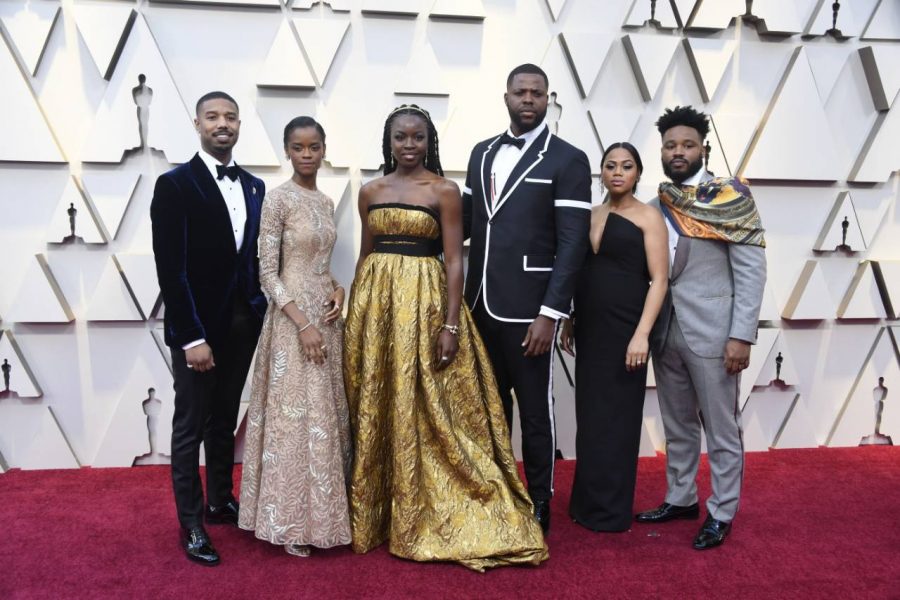Black Panther and the Legitimacy of the Oscars
Photo courtesy comicbook.com
Black Panther cast at the Oscars
The 91st Academy Awards, located in Los Angeles, California, is set to be different from its predecessors. The ratings for last year’s broadcast were at their lowest in history, with only 26.5 million viewers. If you compare that number to 2014’s 43.74 million viewers, something is clearly wrong with America’s most prestigious film award ceremony. In response to the declining ratings, some noticeable differences are set for this year’s Oscars, including a shortened runtime (from 4 hours to 3) and for the first time in 30 years, a hostless show. The nomination of Black Panther for Best Picture also surprised many people and broke the Academy’s usual trends. The movie was nominated for seven Academy Awards and was the first superhero movie to be nominated for Best Picture. This nomination, however, is questionable. Black Panther was a cultural phenomenon, but from a purely cinematic standpoint, it should not be a Best Picture nominee.
The film has to be special to be the first superhero movie to be nominated for Best Picture. It should have a unique vision, compelling characters, and an enthralling plot that captures the moviegoer. Black Panther does not fill those criteria. The film, at its core, is just an average and predictable, cookie-cutter Marvel movie. Black Panther, as a character, is neither charismatic nor interesting. His character arc is very formulaic, and once the movie gets going, the viewer can easily tell how the rest of the movie will map out. The action scenes range from somewhat enjoyable to subpar. Additionally, the poor CGI takes the viewer out of the movie, specifically in the scenes with the rhinos, the final train fight scene, and the lack of any blood when a Wakandan’s throat is slit on camera. The movie simply lacks a creative vision and a compelling story.
My core issue with Black Panther is that a sub-par superhero movie is being placed upon a pedestal where it doesn’t belong. Yes, the movie does give black people all over the globe a mainstream superhero that better represents them, but I don’t believe that cultural relevance outweighs the actual cinematic quality of a film. Movies shouldn’t be nominated because of their cultural impact. They should be rewarded for an interesting vision, unique story, and intriguing characters that the director meticulously crafts. The widespread nomination of Black Panther impacts the Oscars as a whole by replacing films that were perhaps more deserving of a nomination other than Black Panther. Indie films like Hereditary, Suspiria, Won’t You Be My Neighbor, and First Reformed are given less of an opportunity to get nominated just because The Academy would rather nominate a more popular movie over a smaller one that might be better cinematically in an effort to try to boost ratings.
For a simple superhero movie with a basic plot that gives a greater representation of the mainstream media, Black Panther does a great job; but, as a film, Black Panther does not deserve the influx of critical acclaim that it has received. Nominating Black Panther for Best Picture might boost ratings, but it compromises the legitimacy of the awards. What does it take to be a Best Picture nominee? Can all mediocre superhero movies with a big cultural impact be nominated for Best Picture, or is Black Panther the exception to the rule? Is it worth compromising the legitimacy of the Oscars in order to nominate more popular films? These are the types of questions that The Academy should consider when moving forward or else their audience will only become more divided, causing their ratings to continue to plummet.







